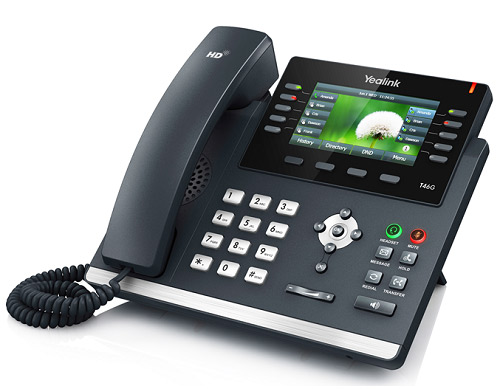Let’s Talk About your Business Phones
 Office technology has changed at a rapid pace, and most businesses have kept up. Surprisingly, business phone systems are usually overlooked or are the last business tool to be updated.
Office technology has changed at a rapid pace, and most businesses have kept up. Surprisingly, business phone systems are usually overlooked or are the last business tool to be updated.
The traditional landline phone has been augmented by the mobile phone, but the network system that supports them both is only lately beginning to get the consideration that it deserves.
While there are multiple phone systems available, in effect there are three basic types to choose from – the aforementioned landline, the virtual phone system, and the Voice over Internet Protocol (VoIP) system.
As you might expect, there are pros and cons to each system. Let’s take a quick look at each one:
TRADITIONAL LANDLINES
Landlines, also known as public switched telephone networks (PSTNs), are analog systems that operate using the telephone company’s traditional copper wiring. Some landline systems today are considered hybrids with VoIP systems, wherein a traditional phone line connects to a business’s data network.
Pros: Landline systems are a reliable, solid solutions that we’re all familiar with and have grown up using.
Cons: Phone system providers are moving away from landlines, making hardware and technical support harder to come by. At some point, landlines will be considered obsolete.
VIRTUAL PHONE SYSTEM
Virtual phone systems utilize the same analog systems that landlines do. They function by taking advantage of call-forwarding solutions to transfer calls that come into a main business phone number to each employee’s cell or home phone instead of a desk phone.
These systems often include a variety of features, such as automated receptionists, voicemail, and call screening.
Pros: This type of service gives remote workers access to various phone system features that mobile and home phones don’t offer. For businesses with a remote work force, this allows their customers to feel that they are dealing with a centralized location.
Cons: Virtual system calls are often still processed on an analog mobile or home phone network, meaning that users will still be charged for the call while using up mobile or home phone minutes, and are still susceptible to the same issues as a landline.
 VOICE OVER INTERNET PHONE (VoIP) SYSTEM
VOICE OVER INTERNET PHONE (VoIP) SYSTEM
Instead of the copper wires that landlines run on, VoIP phone systems use the same internet connection that a business network already uses. They are available with either on-premises or cloud-based hosting capabilities.
VoIP systems often provide state-of-the-art features, such as automated attendants, call queues, and the ability to have voicemails sent to email inboxes, and computers to be turned into softphones.
Pros: Even though VoIP systems provide a sophisticated phone system, they are easy to set up and configure. Even more significantly, they are often cheaper than landline systems.
Cons: VoIP systems rely on an internet connection, and only function as well as it does. If you have confidence in your internet support, then a VoIP system will work just as well as the rest of your business network does.
HERE is more information on our fully-integrated, cloud-based unified communications and collaboration platform.
Return to the Tech Trends Newsletter

